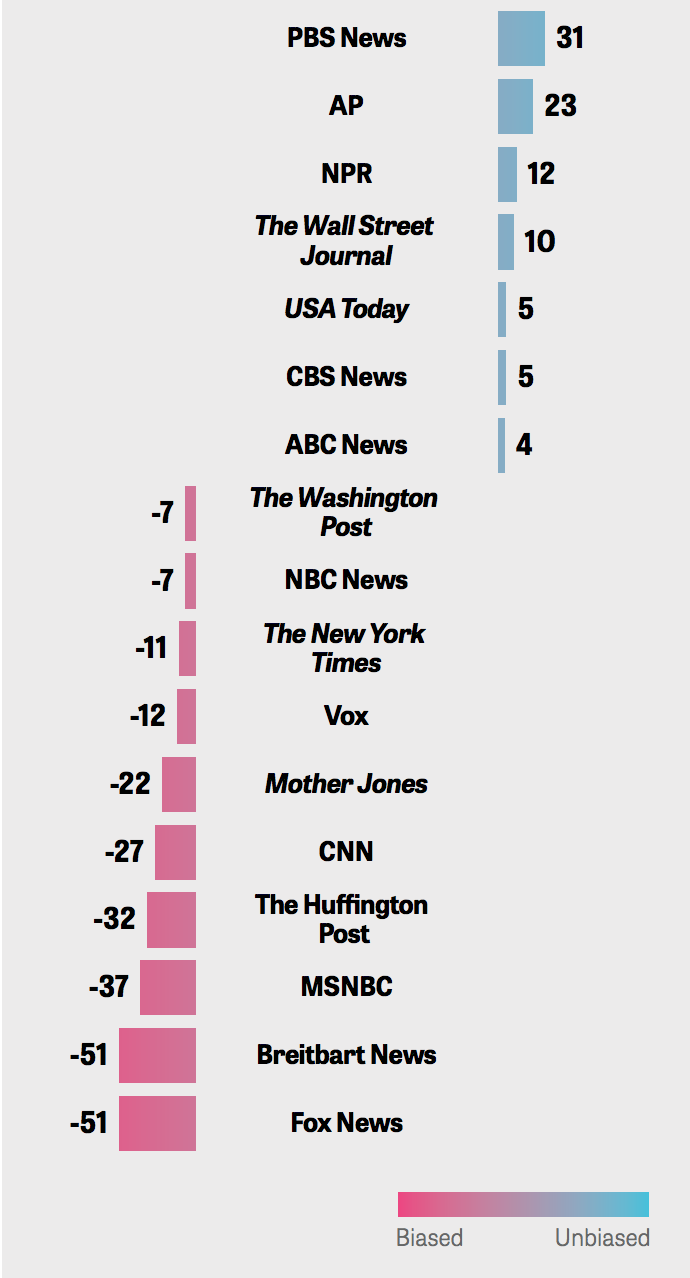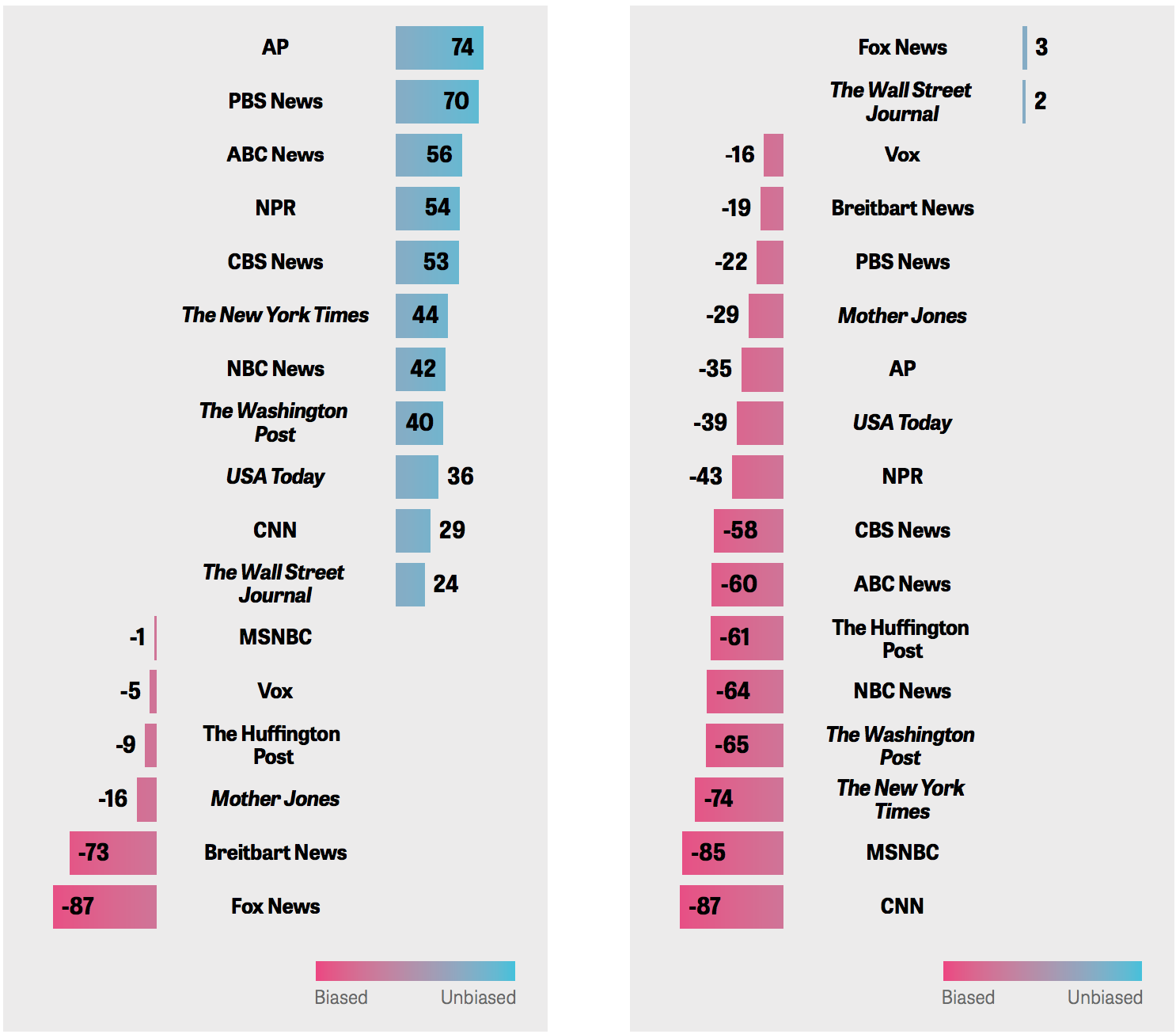
The growing stream of reporting on and data about fake news, misinformation, partisan content, and news literacy is hard to keep up with. This weekly roundup offers the highlights of what you might have missed.
Republicans think that almost every news outlet is biased, except for Fox News and The Wall Street Journal. Two reports this week from Knight — one on Americans’ concerns about media bias, the other on misinformation. One thing that stands out from the latter report is that Americans believe a staggeringly large percentage of the news they see is “misinformation”: “On average, Americans estimate that 39 percent of the news they see on television, read in newspapers or hear on the radio is misinformation. They believe nearly two-thirds of the news they see on social media — 65 percent — is made up or cannot be verified as accurate. (Gallup/Knight defined misinformation as “stories that are made up or cannot be verified as accurate but are presented to readers as if they are accurate.”)
These averages are driven by people who identify as Republicans or conservatives:

In addition, “[College graduates] estimate far less misinformation on television, on the radio and in newspapers than do those with a high school education or less (29% vs. 43%).”
This finding echoes other recent research.
Knight also calculated “net bias” scores for news organizations: “the percentage who see each as ‘not biased at all’ or ‘not very biased’ minus the percentage who see each as ‘extremely biased’ or ‘very biased.’ On this measure, positive scores indicate that more people consider the news source unbiased than biased, and negative scores mean more people consider it biased than unbiased. Here’s the overall:

But check out the differences between Democrats (left) and Republicans (right):

“Democrats, including Democratic-leaning independents, tend to see most news organizations as unbiased, except for Fox News, Breitbart News, Mother Jones, the Huffington Post, and Vox,” the authors write. “Republicans, including Republican-leaning independents, tend to see all news organizations as biased. The two exceptions are Fox
News and The Wall Street Journal.”
I’m wondering a bit about Knight’s definition of “bias,” which is “news organizations reporting stories in a way that unfairly favors one person or group over another, even if the facts reported are accurate.” Like, how does unfairness play into people’s rankings here, versus thinking that the sites are actually reporting inaccurate information? How much do people’s memories of Huffington Post as led by Arianna Huffington carry over? What’s with the Vox rankings, and how many of the respondents here actually know what Vox is? (Earlier in the report, the authors note, “The
internet-only sites Breitbart News, the Huffington Post and Vox, get lower accuracy ratings, but to a large degree, that reflects lower familiarity with them.”)
The reports surveyed 1,440 people from the Gallup Panel of U.S. adults; it’s part of broader Knight research on Americans’ views of the media, and that research will continue through July.
Facebook expands its fact-checking program. Facebook’s blog post is here and Poynter’s writeup of Facebook product manager Tessa Lyons speaking at its Global Fact-Checking Summit this week in Rome about some of the changes is here. For instance:
Lyons announced that Facebook will start taking more aggressive actions against pages that consistently share misinformation. The company already reduces their distribution and removes their ability to advertise and monetize — but now it will use machine learning to predict pages that are likely to spread financially motivated misinformation based on similar pages fact-checkers have already identified.